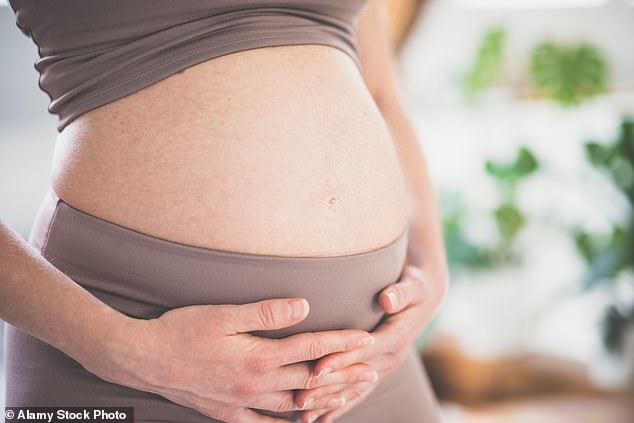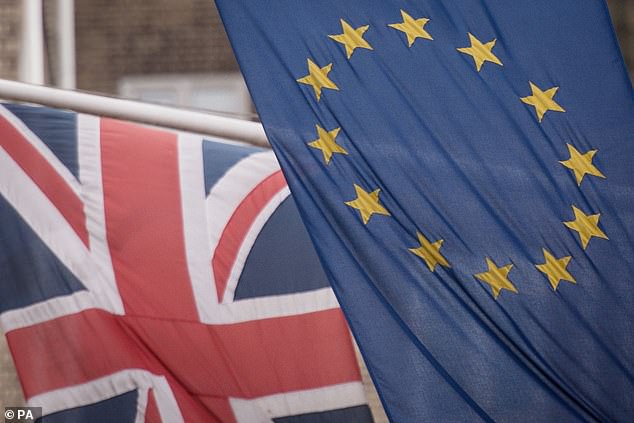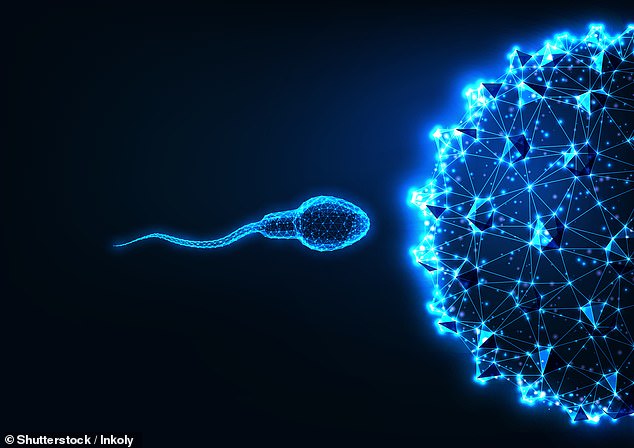A number one European suppose tank has claimed that Brexit may trigger Britain's falling fertility price to extend additional.
A report launched by the Paris-based Organisation for Financial Co-operation and Growth (OECD) cites 'Euroscepticism' as one of many causes for Britain's current falling price.
However one knowledgeable, talking on the launch of the Society at a Look paper final week (20 June), went a step additional and claimed Brexit may result in younger {couples} deciding to not have youngsters.
Total, the paper concluded that the overall fertility price (TFR) throughout OECD international locations has, on common, fallen by greater than half because the Nineteen Sixties.
In 1960, on common, ladies gave start to three.3 youngsters, which decreased to 1.5 youngsters in 2022.

A report launched by the Paris-based Organisation for Financial Co-operation and Growth (OECD) cites 'Euroscepticism' as a purpose for Britain's current rate of interest cuts.

However one knowledgeable, talking on the launch of the Society at a Look paper final week (20 June), went a step additional and claimed Brexit may result in younger {couples} deciding to not have youngsters.
The UK was barely above common by way of falling fertility charges – British ladies gave start to 2.7 youngsters in 1960, right down to 1.5 youngsters in 2021 – the newest information accessible from the OECD for this 12 months.
When requested if fertility was associated to political modifications, Brexit was cited for instance of why younger {couples} select to not have youngsters.
Vienna-based researcher Tomas Sobotka instructed the gathering: 'One issue I wish to point out is political polarisation in some international locations, very polarised political discourse, the place typically the technology feels that they’re exterior politics or that politics doesn’t replicate their views and their wants.
'An instance may very well be, for instance, Brexit within the UK, the place it had overwhelming political assist by the over-50 technology, whereas youthful adults have fully totally different views and priorities on this problem.'
The autumn within the fertility price within the UK was a lot lower than in different main international locations, together with a number of G7 leaders Italy, Japan, Canada and Germany.
Of their part on uncertainties affecting fertility, the authors of the report claimed that 'xenophobic reactions' and the 'rise of populism' may affect fertility charges.
The report says: 'Issues concerning the future prolong far past the financial fallout from the 2008 recession, together with xenophobic responses to the refugee disaster in 2015.
'Euro-scepticism, the rise of populism and Russia's aggressive warfare towards Ukraine all contribute to the sense of uncertainty and unpredictability that potential mother and father face when deciding whether or not to have a second youngster.'

Reform MP Lee Anderson stated: “Brexit ought to be blamed for all the things. England performed very poorly final night time, Brexit ought to be blamed for that too.”

The UK was barely above common by way of declining fertility charges – in 1960 British ladies gave start to 2.7 youngsters, right down to 1.5 in 2021 – the OECD has the newest figures accessible for this 12 months
In line with the Workplace for Nationwide Statistics, which is liable for accumulating and analysing information about UK society and inhabitants, the TFR has been declining since 2010.
The TFR estimates the variety of youngsters a hypothetical group of ladies can anticipate to have on the finish of their reproductive life.
The feedback have been criticised final night time as an try and blame the challenges on Britain's choice to depart the EU.
Reform MP Lee Anderson stated: “Brexit ought to be blamed for all the things. England performed very poorly final night time, Brexit ought to be blamed for that too.
'This has in all probability been the wettest 12 months we've ever had, blame it on Brexit. Let me let you know, something dangerous that occurs in Europe is blamed on Brexit.
'However the humorous factor is that European international locations are dealing with precisely the identical issues as we’re – is it due to Brexit?
“These persons are simply believing lies. It is advisable pay quite a lot of consideration to what these individuals say.”
'They need to be taken someplace distant and stored in a darkish room, and whale music ought to be performed.'
OECD sources stated that though Mr Sobotka didn’t contribute to the report, the authors cited his papers within the chapter on replica.
He was one of many impartial consultants invited to the panel dialogue – the supply stated Mr Sobotka was extremely revered within the area.
Mr. Sobotka later downplayed his remarks, saying there was no information to assist his conjecture.
He stated: 'I had no intention of suggesting that Brexit would have a direct affect on reproductive choices.
'I used to be citing Brexit as a primary instance of political polarisation, the place the political illustration of many international locations makes life-changing long-term choices that aren’t in step with the pursuits (and voting) of the youthful technology.
'These coverage divisions gas excessive ranges of dissatisfaction and pessimism about future prospects amongst younger adults in lots of international locations as we speak, which is without doubt one of the elements that may have a unfavourable affect on fertility.
'You may need seen quite a lot of 'possibly' and 'may very well be' in my writing, as a result of I don't have the information and proof to really show this relationship for particular person international locations or make any empirical assessments, so the estimate is speculative.
'Evidently, my views don’t characterize these of the OECD. I used to be invited as an impartial researcher to touch upon tendencies and elements influencing fertility.'
The OECD has beforehand been accused of presenting a depressing financial outlook for Britain's post-Brexit financial system.
Days earlier than the Brexit referendum in 2016, the OECD stated Britain’s financial development can be 3 per cent decrease than if it remained within the EU – the equal of £2,200 much less per family on the time.


